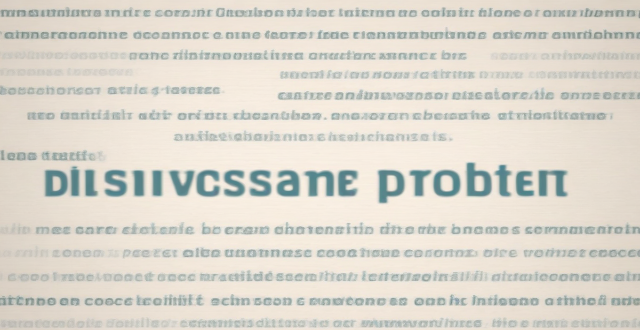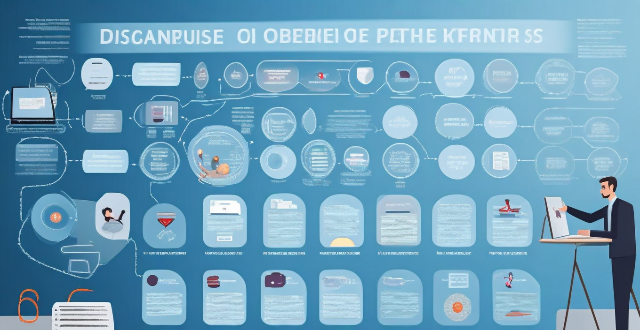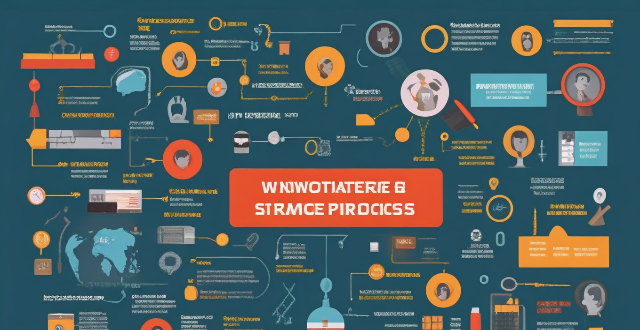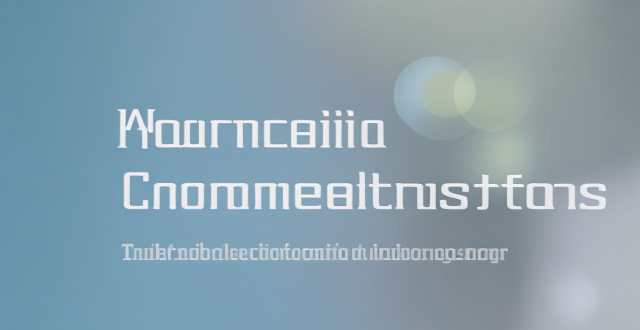Assets Trust

What is the difference between a will and a trust ?
The text discusses the differences between wills and trusts in estate planning, highlighting key areas where they diverge. A will is a legal document outlining distribution wishes for assets after death, requiring witnesses and taking effect posthumously. It allows control over assets during one's lifetime and goes through probate, a public process. Wills are flexible and generally less costly to create but offer no tax benefits. Conversely, a trust involves transferring property to a trustee for beneficiaries, with creation and effectiveness varying. Trusts can avoid probate, offering privacy and potential tax benefits but at a higher initial cost and less flexibility, especially if irrevocable. Choosing between them depends on individual needs and preferences.

How can I protect my assets from creditors or lawsuits ?
When it comes to protecting your assets from creditors or lawsuits, there are several strategies you can consider. These strategies aim to safeguard your wealth and ensure that you have financial security in case of legal actions against you. Here are some key steps to take: ### 1. **Create a Trust** A trust is a legal entity that allows you to transfer assets into it for the benefit of a third party, known as the beneficiary. By placing your assets into a trust, they are no longer directly owned by you, making them less vulnerable to creditors or lawsuits. There are different types of trusts, such as: - Revocable Living Trust: You can modify or revoke this type of trust during your lifetime. - Irrevocable Trust: Once created, you cannot change or cancel this type of trust. - Special Needs Trust: Designed for individuals with special needs, this trust helps them qualify for government benefits while still having access to funds for other expenses. ### 2. **Establish Limited Liability Entities** Forming limited liability companies (LLCs) or corporations can help protect your personal assets from business-related debts and lawsuits. These entities act as separate legal entities, meaning that their liabilities do not extend to your personal finances. Examples include: - Single Member LLC: Suitable for sole proprietors looking to limit their personal liability. - Multi-Member LLC: Ideal for partnerships where multiple members contribute to the business. - S Corporation: Offers pass-through taxation and limits shareholder liability to their investment in the company. ### 3. **Purchase Insurance** Having adequate insurance coverage is essential in protecting your assets from unexpected events. Make sure you have the following types of insurance policies: - Liability Insurance: Covers damages or injuries caused by you or your property. - Umbrella Policy: Provides additional liability coverage beyond your standard policies. - Homeowner's Insurance: Protects your home and belongings from damage or loss due to various perils. - Auto Insurance: Covers damages and injuries related to vehicle accidents. ### 4. **Diversify Your Assets** Spreading your wealth across different asset classes can help minimize the impact of any single lawsuit or creditor claim. Consider investing in: - Real Estate Investment Trusts (REITs): Allows you to invest in real estate without owning physical property. - Stocks and Bonds: Diversify your portfolio with various securities to reduce risk. - Precious Metals and Cryptocurrencies: Non-traditional assets that may offer protection against market volatility. ### 5. **Consult with Professionals** Before implementing any asset protection strategy, it's crucial to consult with professionals who specialize in this area, such as attorneys, financial advisors, and accountants. They can guide you through the process, ensuring that you comply with all legal requirements and maximize the effectiveness of your chosen strategies.

How do I ensure that my digital assets are handled after my death ?
Managing digital assets after death requires careful planning and regular updates to keep pace with technological changes. This guide outlines steps to take to ensure your online presence is handled according to your wishes, including inventorying assets, choosing a digital executor, including assets in your will, using digital legacy services, setting up access and instructions, and reviewing and updating plans regularly. By following these steps, you can protect your online legacy and provide clarity for your loved ones.

What is the process for distributing assets after someone dies ?
The process for distributing assets after someone dies is known as probate. It involves filing the will, notifying beneficiaries and heirs, inventorying assets, paying off debts and taxes, and then distributing the remaining assets according to the terms of the will or state law if there is no will. The executor or administrator is responsible for managing the deceased person's estate and all potential beneficiaries and heirs must be notified of their rights and responsibilities.

Is there a correlation between ESG performance and consumer trust ?
ESG performance is crucial for companies and can enhance consumer trust, leading to increased loyalty and sustainable growth.

How do I provide for minor children in my estate plan ?
When it comes to estate planning, one of the most important considerations is how to provide for your minor children. Here are some steps you can take to ensure that your children are taken care of financially and emotionally after you're gone: Create a will or trust, name a guardian, establish a trust fund, consider life insurance, and make sure your beneficiaries are up-to-date.

How can I minimize estate taxes in my estate plan ?
The text discusses strategies to minimize estate taxes in one's estate plan. These include understanding the basics of estate taxes, utilizing the lifetime exclusion, establishing trusts like irrevocable trusts and spousal lifetime access trust (SLAT), gifting to family and charities, life insurance planning through irrevocable life insurance trust (ILIT), using family limited partnerships or LLCs, seeking professional guidance, and staying informed about changes in tax laws.

What is probate, and how can I avoid it ?
This text discusses probate, the legal process of transferring a deceased person's assets to their heirs or beneficiaries. It explains why many choose to avoid probate, which can be time-consuming and costly, and outlines various methods for doing so, such as creating a revocable living trust, joint tenancy with right of survivorship, pay-on-death accounts, transfer-on-death designations, gifting assets during one's lifetime, designating beneficiaries on retirement accounts and life insurance policies, using a will with a probate avoidance clause, and considering state-specific strategies. The text emphasizes the importance of careful planning and consulting professionals to ensure assets are distributed according to one's wishes without court interference.

How can we address concerns about vaccine hesitancy and improve public trust in vaccination programs ?
Addressing vaccine hesitancy and improving public trust in vaccination programs is crucial for maintaining public health. To achieve this, transparent information, enhanced communication, building trust, offering incentives, and monitoring and evaluation are key steps to take.

What documents are typically included in an estate plan ?
An estate plan is a collection of legal documents that outline how an individual's assets and property will be distributed after their death. These documents can include various types of legal instruments, each serving a specific purpose in the estate planning process. Here are some of the most common documents included in an estate plan: - Last Will and Testament: A legal document that states how a person's property and assets will be distributed after their death. - Durable Power of Attorney: A legal document that grants authority to another individual (agent) to act on behalf of the principal in financial matters. - Healthcare Power of Attorney: A legal document that designates someone to make healthcare decisions on behalf of the principal if they are unable to do so. - Living Will: A document that provides instructions about your wishes for medical treatment and end-of-life care. - Trusts: A legal entity that holds and manages assets for the benefit of one or more individuals (beneficiaries). - Beneficiary Designations: The process of naming who receives the proceeds of a bank account, retirement account, or life insurance policy upon the account holder's death. - Letter of Intent: A non-legal document that provides additional information about personal wishes, sentimental items, and instructions for final arrangements.

How do DeFi tokens work ?
Decentralized Finance (DeFi) tokens are digital assets operating on blockchain technology, designed to facilitate financial transactions without intermediaries. These tokens can represent various assets like currencies, commodities, and cryptocurrencies. Key features of DeFi tokens include decentralization, smart contracts, and interoperability. They work through token issuance, utility within their respective projects or platforms, and governance mechanisms allowing holders to vote on important decisions related to the project's development. Benefits of DeFi tokens include accessibility, transparency, and innovation in financial products and services.

How do I create a comprehensive estate plan ?
Creating a comprehensive estate plan is essential to ensure your assets are distributed according to your wishes after you pass away. Here are some steps to help you create a comprehensive estate plan: 1. Determine your goals and objectives, such as who you want to inherit your assets and how you want them distributed. 2. Gather information about all your assets, including real estate, bank accounts, investments, life insurance policies, and personal property. 3. Choose beneficiaries for your assets, including individuals, charities, or trusts. 4. Consider tax implications, such as federal and state estate taxes, gift taxes, and generation-skipping transfer taxes. 5. Create legal documents such as a will, power of attorney, healthcare proxy, and living will to ensure your wishes are carried out in case of incapacity or death. 6. Set up trusts to manage your assets during your lifetime and distribute them after your death. 7. Review and update your plan regularly to ensure it remains current with changes in your life. Working with a qualified professional can help ensure that your estate plan meets your needs and achieves your desired outcomes.

How can women protect their assets and ensure long-term financial security ?
The article provides a list of strategies that women can employ to ensure their financial security over the long term. These include building an emergency fund, investing in retirement accounts, purchasing life insurance, creating a will, considering long-term care insurance, educating oneself about finance, working with a financial advisor, and prioritizing career development. Each of these steps is crucial in its own way for safeguarding one's assets and ensuring financial stability.

Do I need a lawyer to create an estate plan ?
Estate planning is important for ensuring that your assets are distributed according to your wishes after you pass away. While it is possible to create an estate plan without a lawyer, working with a legal professional can provide numerous benefits such as legal expertise, customized plans, and peace of mind. However, if you have a simple estate with few assets and no complicated family dynamics, creating a basic estate plan using online tools or templates may be sufficient. It is still important to consult with a lawyer to ensure that your plan meets all legal requirements and addresses any potential issues.

Can we trust climate models for future predictions ?
Climate models are designed to predict future changes in the Earth's climate based on scientific principles and past observations. Trust in these models depends on factors such as their scientific foundation, data quality, model complexity, intercomparison, historical validation, uncertainty quantification, and continuous improvement. While no model can perfectly predict the future, climate models offer valuable insights into potential future scenarios based on current knowledge and understanding. However, it is important to recognize their limitations and uncertainties when interpreting their results.

In what ways can team dynamics and chemistry affect overall performance in team sports ?
The article discusses the impact of team dynamics and chemistry on performance in team sports, highlighting trust, role clarity, effective leadership, and adaptability as key factors. Trust fosters open communication and reduces conflict, while clear roles improve efficiency and cohesion. Effective leaders provide motivation and accountability, and adaptability allows teams to respond to challenges and capitalize on opportunities. By focusing on these elements, teams can improve their chances of success.

Can I trust third-party repair shops for my iPhone ?
When considering third-party repair shops for iPhone repairs, there are pros such as cost-effectiveness, convenience, and flexibility. However, cons include potential quality assurance issues, warranty voidance, and security risks. To choose a reliable third-party repair shop, research online, ask for recommendations, check certifications, visit in-person, and compare prices. Weighing the pros and cons and choosing a reputable repair shop can ensure your iPhone is in good hands.

What is influencer marketing and how does it work ?
Influencer marketing involves partnering with individuals who have significant social media followings to promote products or services. The goal is to leverage the trust and loyalty that these influencers have built with their followers to increase brand awareness and drive sales. The process includes identifying the right influencers, building relationships, creating content, and promoting and tracking results. Benefits of influencer marketing include increased brand awareness, higher engagement rates, improved trust and credibility, and cost-effective marketing.

How can I trust the seller of a second-hand iPhone ?
When purchasing a second-hand iPhone, it is important to ensure that you can trust the seller. Here are some tips on how to do so: 1. Check the seller's reputation on online marketplaces or social media platforms. 2. Ask for proof of ownership such as receipts or warranty information. 3. Inspect the phone in person or ask for detailed photos and videos from different angles. 4. Test the phone's functionality by checking battery life, camera quality, speaker and microphone quality, buttons and ports, Wi-Fi and cellular connectivity, touchscreen responsiveness, app performance, iCloud account, activation lock, IMEI number, warranty status, water damage indicator, serial number, storage capacity, carrier compatibility, price, return policy, payment method, shipping method, meetup location, and test duration.

What are the benefits of using data encryption in business ?
Data encryption in business offers protection of sensitive information, compliance with legal requirements, enhanced customer trust, defense against cyber threats, and controlled data access. It ensures confidentiality and integrity of communications, helps meet regulatory standards, safeguards personal data, builds customer confidence, mitigates risks of data breaches, guards against malware and ransomware, provides role-based access control, and simplifies key management. This makes encryption an essential tool for securing digital assets and strengthening a company's market position.

Can I trust cashback websites for my online transactions ?
Cashback websites can offer significant savings and convenience, but also come with certain risks and limitations. To safely enjoy the benefits they provide, users should research thoroughly, check privacy policies, monitor accounts, read terms & conditions, and use secure networks. By being cautious and informed, one can avoid potential downsides such as privacy concerns, delayed payments, limited redemption options, scams, and hidden fees.

How does influencer marketing work ?
Influencer marketing is a type of marketing that involves partnering with individuals who have significant social media followings, known as influencers, to promote products or services. These influencers typically have a strong presence on social media platforms such as Instagram, YouTube, Twitter, and Facebook. They are often seen as experts in their field and have built a loyal following of fans and followers who trust their opinions and recommendations. The process of influencer marketing involves identifying the right influencer for your brand, building a relationship with them, creating content featuring your product or service, promoting the content across various social media platforms, and measuring the results of the campaign. Benefits of influencer marketing include increased brand awareness, higher engagement rates, trusted recommendations, and cost-effectiveness compared to traditional advertising methods.

What are the benefits of using blockchain in business ?
The article discusses the various benefits of using blockchain technology in business operations. These benefits include increased transparency and trust, improved security, reduced costs and efficiency, greater control and traceability, enhanced data management, and potential for innovation and new business models. Blockchain's decentralized nature and cryptographic security make it a secure and efficient way to store and manage data, automate processes, and track the movement of goods and services. The technology also offers new possibilities for innovation and disruptive business models.

What is the role of blockchain in the financial industry ?
Blockchain technology has emerged as a game-changer in the financial industry, offering unprecedented levels of security, transparency, and efficiency. Its decentralized nature and immutable ledger system have paved the way for innovative applications that are reshaping the financial landscape. In this article, we will explore the various roles of blockchain in the financial industry. One of the key advantages of blockchain is its ability to create trust without the need for intermediaries. Traditional financial systems rely on central authorities, such as banks or clearinghouses, to verify and record transactions. With blockchain, transactions are verified by a network of nodes, each of which maintains a copy of the ledger. This decentralized approach eliminates the need for intermediaries, reducing costs and increasing efficiency. Blockchain provides a transparent and auditable ledger of all transactions. Each transaction is recorded on the blockchain in a tamper-resistant manner, ensuring that any attempt to alter the ledger will be immediately apparent. This level of transparency enhances accountability and reduces the risk of fraud or errors. Smart contracts are self-executing contracts with the terms of the agreement between buyer and seller being directly written into lines of code. These contracts can automatically execute transactions when certain conditions are met, eliminating the need for intermediaries and reducing the risk of non-performance or disputes. Smart contracts have the potential to revolutionize many areas of finance, including insurance, real estate, and supply chain management. Distributed ledger technology (DLT) is at the heart of blockchain's capabilities. It allows multiple parties to have access to a shared database that is secure, transparent, and tamper-proof. DLT enables faster settlement times, improved cash management, and reduced operational risks. It also facilitates cross-border payments and remittances, making them more efficient and cost-effective. Tokenization involves representing physical assets, such as stocks, bonds, or real estate, as digital tokens on a blockchain. This process enables fractional ownership, easier transferability, and increased liquidity. Tokenization also allows for programmable assets, where rules can be embedded into the tokens themselves, enabling automated compliance with regulations and contractual obligations. Blockchain can be used to create a secure and decentralized identity verification system. This system would allow individuals to control their own identity information and share it selectively with third parties while maintaining privacy. Such a system could significantly reduce identity fraud and streamline processes that require identity verification, such as opening bank accounts or applying for loans. Blockchain's transparency and immutability make it an ideal tool for regulatory compliance. By using blockchain to record all financial activities, regulators can easily monitor and analyze transactions in real-time, identifying potential violations and enforcing compliance more effectively. This could lead to more efficient regulation and better protection for consumers and investors. In conclusion, blockchain technology has the potential to transform the financial industry by improving efficiency, reducing costs, enhancing security, and promoting transparency. From decentralization and trust to smart contracts and tokenization, blockchain is poised to disrupt traditional financial models and create new opportunities for innovation and growth. As adoption continues to accelerate, we can expect to see even more exciting developments in the years ahead.

What are the benefits of climate resilience ?
Climate resilience is crucial for adapting to climate change impacts and recovering from related damages. It offers economic, social, environmental, political, and cultural benefits. These include reduced damage costs, protection of assets, enhanced productivity, improved public health, community cohesion, continuous education, biodiversity conservation, resource stewardship, reduction of greenhouse gas emissions, increased government legitimacy, international leadership, policy innovation, preservation of heritage, strengthening of cultural practices, and promotion of cultural exchange. Building climate resilience ensures more robust, equitable, and sustainable futures.

How does having a blended family affect estate planning ?
Estate planning for blended families requires special considerations, such as establishing clear intentions for fairness and protection, drafting comprehensive legal documents including wills, trusts, and powers of attorney, updating beneficiary designations, navigating tax implications, and fostering open communication. It is crucial to work with estate planning professionals to ensure all family members are provided for according to the individual's wishes.

Can viewers always trust what they see on variety shows, or is it often scripted for drama ?
The text delves into the nature of variety shows, addressing the balance between scripted segments and moments of genuine spontaneity. It underscores that while not all parts are unplanned, many are carefully choreographed to ensure seamless performances, especially in high-energy acts. The discussion highlights the roles of editing and participant roles in shaping the final product, enhancing dramatic impact, and maintaining consistency. Furthermore, it emphasizes the inclusion of drama in variety shows to heighten emotional engagement and provide narrative arcs, cautioning viewers about distinguishing genuine from scripted elements. Overall, the text suggests that viewers should be aware of the show's structured aspects but can still enjoy its entertainment value, appreciating the blend of scripted drama and real-life experiences.

How can we involve marginalized communities in climate decision-making processes ?
Involving marginalized communities in climate decision-making is crucial for equitable solutions. Identify and engage these communities, build trust, provide info & resources, incorporate local knowledge, ensure participation, address power imbalances, and monitor progress.

Can I include charitable giving in my estate plan ?
Including charitable giving in your estate plan is a way to support causes you care about, with potential tax benefits and the creation of a lasting legacy. You can include charitable giving through bequests in your will, charitable trusts, donor-advised funds, life insurance policies, retirement accounts, and donating appreciated stocks. It's important to consult professionals, understand tax implications, and regularly update your plan.